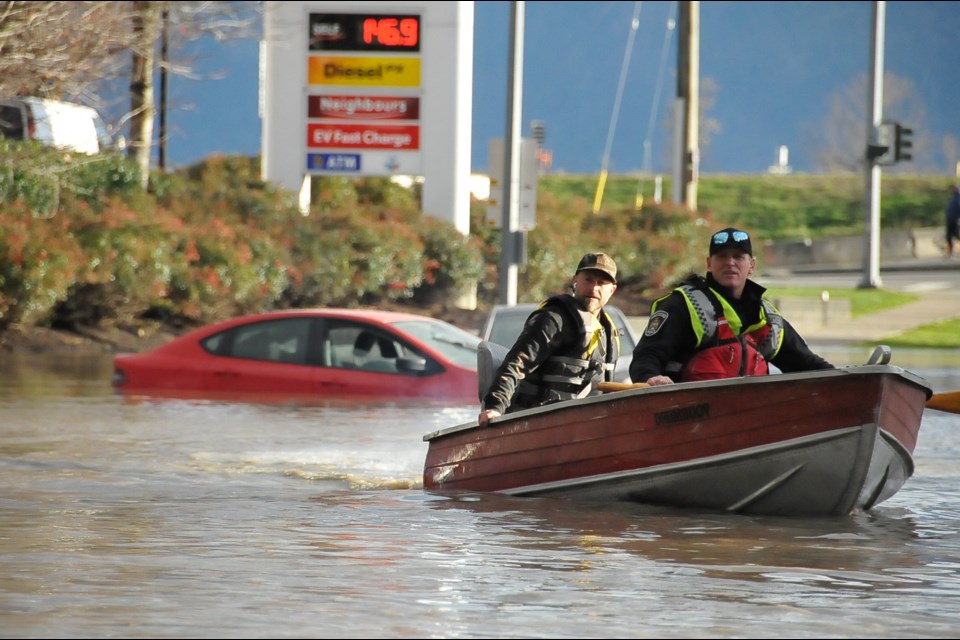The provincial government is hoping to have Highway 3 east of Hope reopened to emergency vehicles by the end of this coming weekend, while assessments continue across the rest of southwest B.C.'s damaged highways.
During a press conference Wednesday, Premier John Horgan declared a state of emergency, which will allow the B.C. government to implement emergency measures around restricting travel and preventing hoarding and price gouging of essential goods.
Horgan said reestablishing the province's supply chains is a top priority for the government, and he urged British Columbians not to hoard groceries.
When will B.C. highways reopen?
While there remains no open highways between the Lower Mainland and the Interior of the province as of Wednesday, Minister of Transportation Rob Fleming said he expects Highway 3 east of Hope to be cleared for emergency vehicles by the end of the weekend.
“It will likely be restricted traffic, we want to get trucks queued up to where they need to be and we want emergency vehicles to have access,” said Fleming. “And quite frankly, it's about getting heavy equipment in there first, because we can punch a hole through but then we've got to clear up a lot of debris and get the highway to a much higher state of functionality.”
Highway 3 between Princeton and Keremeos was reopened Wednesday afternoon.
Overnight, Highway 7 west of Agassiz was reopened for essential traffic only, which allowed contractors and other emergency personnel to get through to help protect the Barrowtown pump station in Abbotsford. Fleming said Highway 7, between Agassiz and Hope, where about 100 vehicles were trapped earlier this week, should be reopened for essential travel by later Wednesday.
Hundreds of travellers have been stuck in Hope for days, as routes to the east and west of the area have been blocked.
Meanwhile, two slides hit Highway 99 north of Pemberton Monday, killing at least one woman, and three others who were on the highway remain missing. Fleming said early assessments of the road appear to show the pavement is intact, and he expects to have a timeline of reopening that highway by the end of the day Wednesday.
Fleming had no update on a timeline of reopening on the Coquihalla, which appears to have been hardest by slides and rising rivers. Meanwhile, the Trans-Canada Highway remains completely flooded through parts of Abbotsford. Fleming called Sunday and Monday's weather event the worst storm in a century in B.C.
Now that the provincial state of emergency has been declared, Minister of Public Safety Mike Farnworth said they may look to restrict travel, once highways start to come back online.
“This declaration will allow us to implement any provincial emergency measures and allow access to all assets that may be necessary to prevent, respond or to alleviate the effects of an emergency,” Farnworth said.
“This may include measures to prohibit non-essential travel, to prevent hoarding, to prevent price gouging — similar to what we had to to during the COVID-19 emergency.”
First Nations 'bear the brunt' of climate change
The announcement comes after calls from the First Nations Leadership Council (FNLC) demanded the provincial government enact a state of emergency due to “unprecedented climate weather events in B.C.”
The body, comprised of the Union of British Columbia Indian Chiefs (UBCIC), First Nations Summit, and British Columbia First Nations Assembly of First Nations (BCAFN), called on the province to declare an “indefinite” state of emergency, Tuesday.
“Many First Nations are under evacuation order or alert and are left navigating onerous and complicated provincial emergency funding systems that fails to meet their unique needs,” the statement said.
Grand Chief Stewart Philip, president of the UBCIC, said First Nations across the province are continuing to “bear the brunt” of the climate change impacts, and the continuing “unprecedented” weather events show lives and communities are already at immanent risk.
“This is no time for the province to forge ahead with antiquated fossil fuel projects and logging of old-growth forests that will only continue to worsen the absolute environmental catastrophe we are experiencing. The response to climate change must be cross-ministerial and cannot be siloed into one ministry. The province must start to actively connect the climate crisis dots,” he said.
BCAFN Regional Chief Terry Teegee said the weather events the province has seen over the last year are not isolated.
“These are the ongoing repercussions of human-caused climate change that threaten our existence. B.C. and Canada's failure to address climate change and its impacts on First Nations is inhumane,” he wrote.
The FNLC said that as climate-related disasters continue to disproportionately impact First Nations, it’s time for government-to-government relations to recognize First Nations jurisdiction in all areas, including emergency management.
“We need action and we are not going to wait around for this action any longer. The government response continues to underestimate the emergency we are facing and it's time for First Nations to lead the work required to protect our communities for our future generations,” Robert Phillips, from First Nations Summit, said.
With files from Charlie Carey





